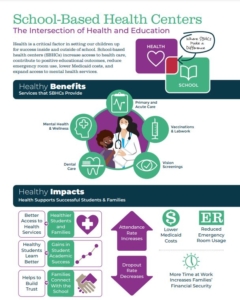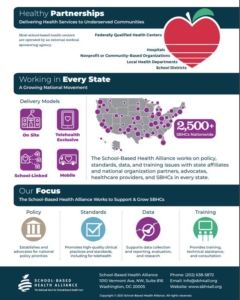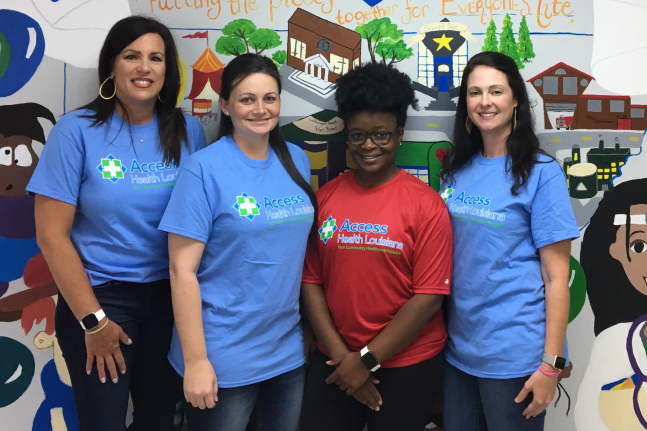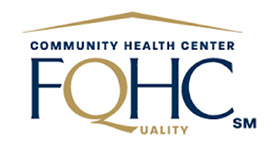News, Access Health Louisiana Primary Care at Pythian, Belle Chasse Community Health Center, Kenner Community Health Center, South Broad Community Health Center, St. Bernard Community Health Center, St. Charles Community Health Center – Norco, St. Charles Community Health Center – Luling, St. Tammany – Slidell Community Health Center, Tangipahoa Community Health Center, Washington Community Health Center, Woodworth Community Health Center
The Intersection of Health & Education
Access Health Louisiana celebrates School-Based Health Awareness Month in February. Our Federally Qualified Health Center Network currently operates 22 school-based health centers in seven Louisiana parishes: Jefferson, Orleans, St. Charles, Iberville, Washington, Rapides, and Allen. Our dedicated nurse practitioners, medical assistants, Licensed Clinical Social Workers (LCSWs), Licensed Professional Counselors (LPCs) and directors care for thousands of students each and every day. School-based health centers not only help educated children, adolescents and teens about the importance of good health, but also help keep children in school and focused on their education. Students seen within our school-based health centers never pay a co-pay for services. We accept all forms of insurance including Medicaid and uninsured.
Why are school-based health centers important?
Health is a critical factor in setting our children up for success. Healthy children are more
likely to attend school ready to learn and achieve higher levels of educational attainment,
providing greater access to future opportunities and a pathway out of poverty. School-based health centers (SBHCs) have demonstrated their ability to increase access to healthcare, reduce emergency room use, lower Medicaid costs, and increase the use of sensitive services like mental health counseling. The Community Preventive Services Task Force recommends SBHCs as an evidence-based intervention to improve educational and health outcomes in low-income communities.
What is a school-based health center?
School-based health centers (SBHCs) provide the nation’s vulnerable children and youth
with access to primary care, behavioral health, oral health, and vision care where they spend the majority of their time – at school. Working at the intersection of health and education, SBHCs collaborate with school districts, school principals, teachers, school staff, families, and students. This collaboration, care coordination, and youth engagement results in not only improved student, school staff, and community health literacy and outcomes, but also contributes to positive educational outcomes including reduced absenteeism, decreased disciplinary actions and suspensions, and improved graduation rates. SBHCs advocate for the needs of low-income children, youth, and families, provide them with a safe haven, and serve as a protective factor that reduces poor health and education outcomes.
How are school-based health centers funded?
Funding sources for SBHCs include public and private insurance reimbursement; state, federal, and local government appropriations; contributions from private foundations, sponsor agencies, and school systems; and in-kind donations of services and products. For a majority of centers, the most critical source of funding is third party payer reimbursement, contributing to a sustainable model of care. Although district superintendents have the budget authority to help fund SBHCs, the overwhelming majority
of SBHCs operate without school district funding or staff.
Source: National School-based Health Alliance



